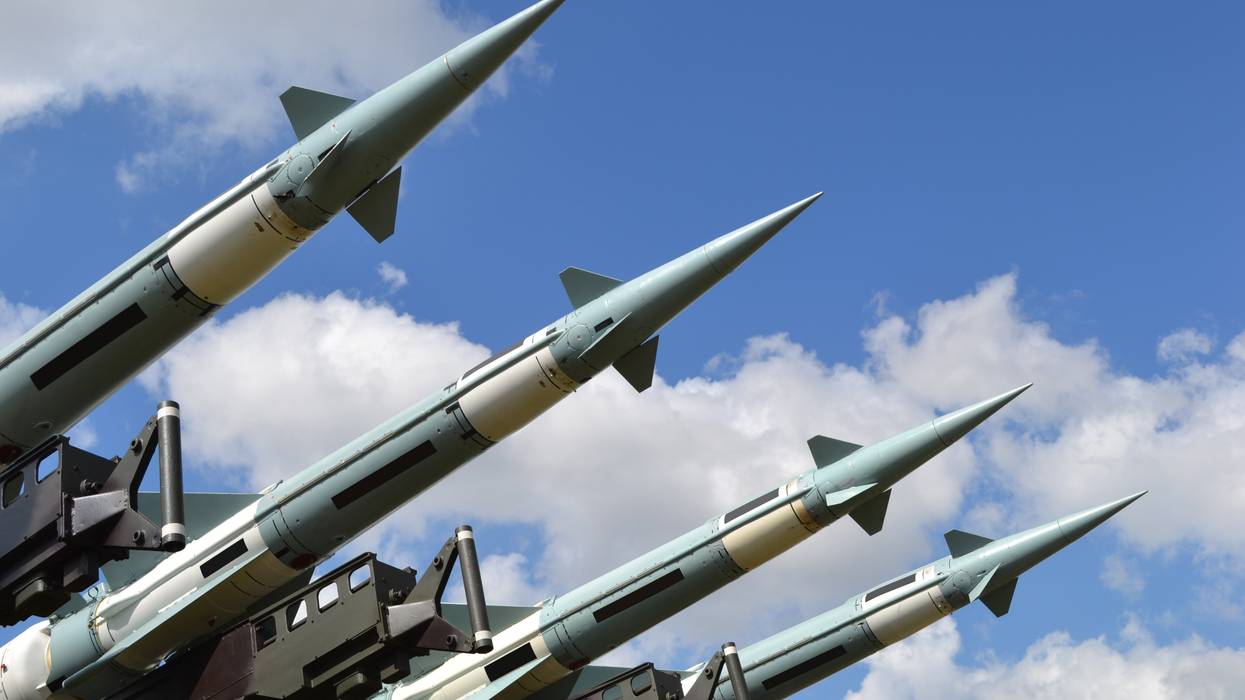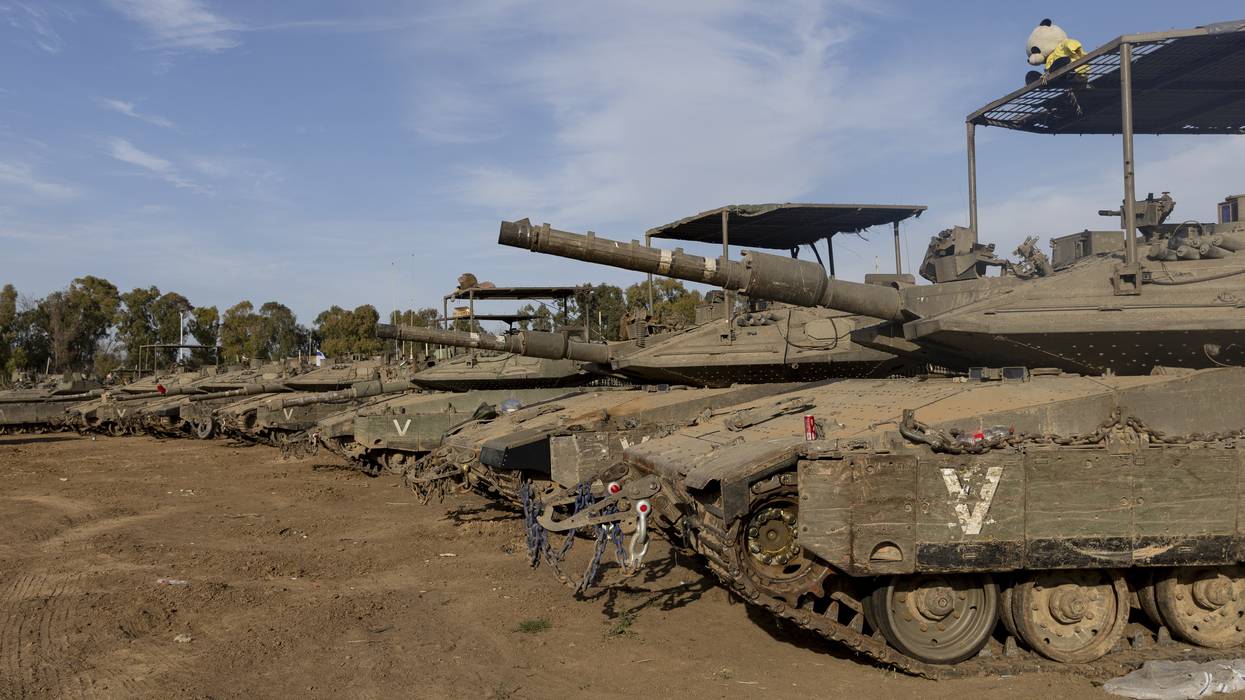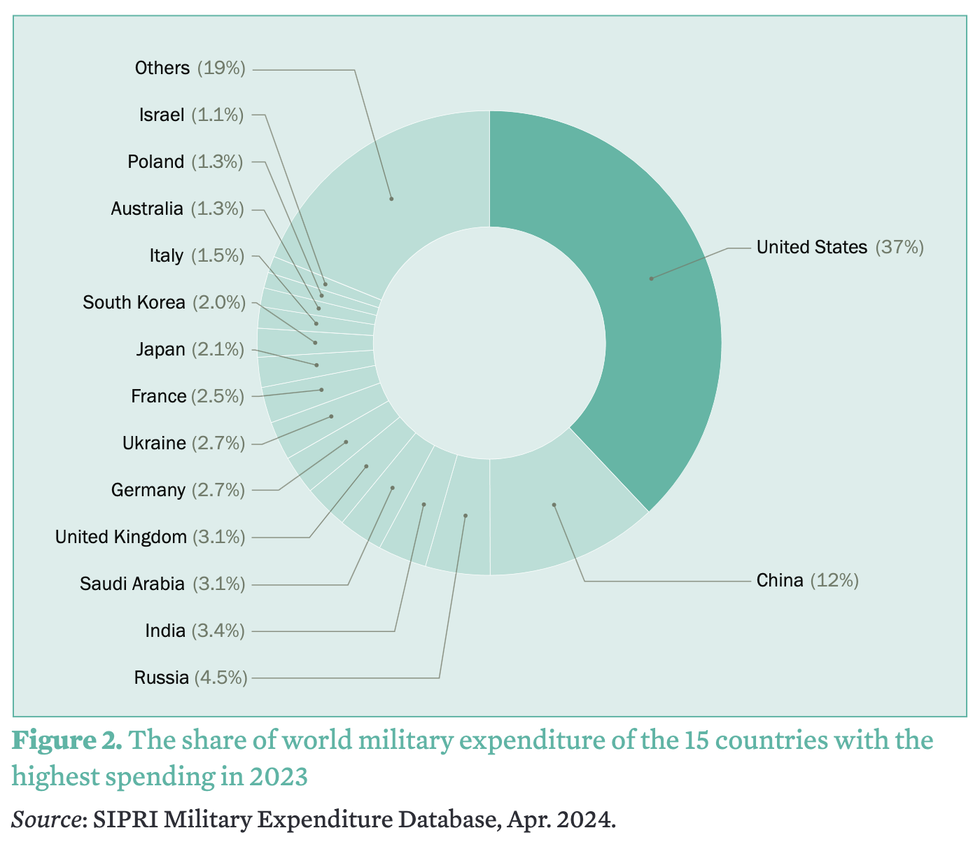Led by US, Revenue of Major Weapons Makers Hit All-Time High in 2024
"Last year global arms revenues reached the highest level ever recorded by SIPRI as producers capitalized on high demand," said researcher behind annual report.
An annual report out Monday that tracks global arms sales shows that weapons makers in 2024 generated more revenue than at any time since the group behind the research began tracking the data over 35 years ago.
The annual report by the Stockholm International Peace Research Institute (SIPRI) shows that the top 100 weapons makers in the world—led by those in the United States—brought in a record-setting $679 billion over the course of the year, fueled mainly by the war in Ukraine, Israel's genocidal assault on Gaza, and spending on nuclear weaponry.
"Last year global arms revenues reached the highest level ever recorded by SIPRI as producers capitalized on high demand," said Lorenzo Scarazzato, a researcher with the SIPRI Military Expenditure and Arms Production Programme, which has been tracking global arms sales since 1989.
"In 2024," the report explains, "the growing demand for military equipment around the world, primarily linked to rising geopolitical tensions, accelerated the increase in total Top 100 arms revenues seen in 2023. More than three-quarters of companies in the Top 100 (77 companies) increased their arms revenues in 2024, with 42 reporting at least double-digit percentage growth."
In 2024, SIPRI noted, "all of the five largest arms companies increased their arms revenues," the first time that has happened since 2018. According to the report, those five companies alone—Lockheed Martin, RTX, Northrup Grumman, BAE Systems, and General Dynamics—accounted for an estimated $215 billion of the total arms sales tabulated in the report. Of those five, four are US companies while BAE is based in the United Kingdom.
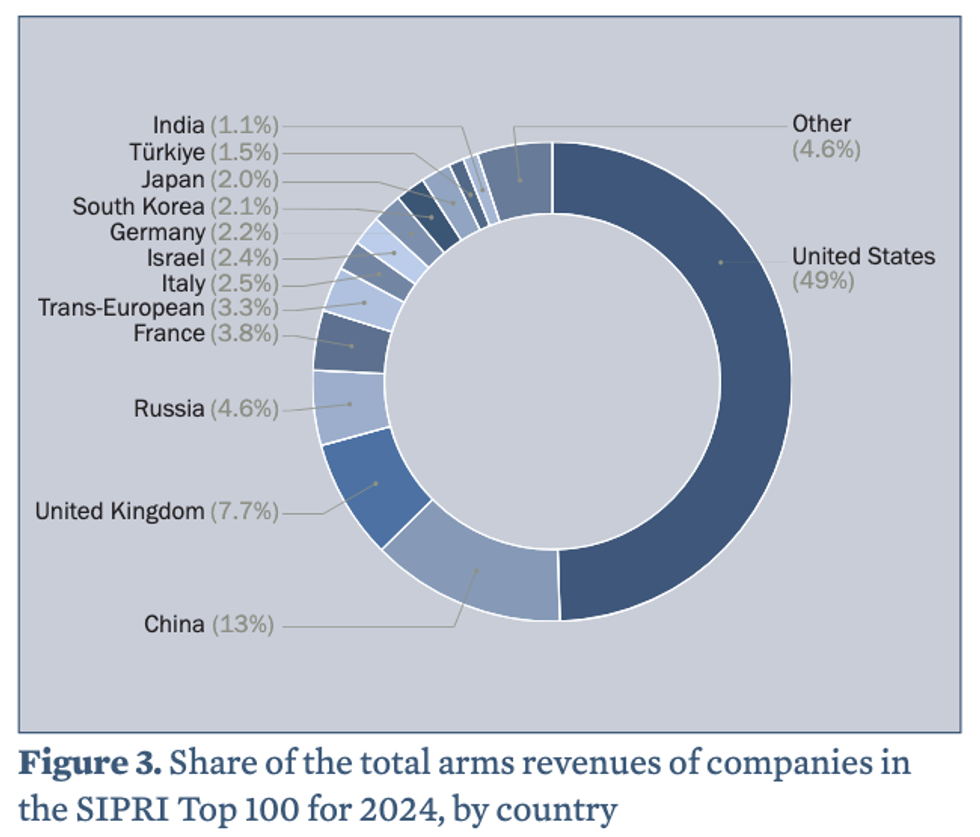
In the sixth spot overall was Boeing, another US company, which generated nearly $31 billion in revenue.
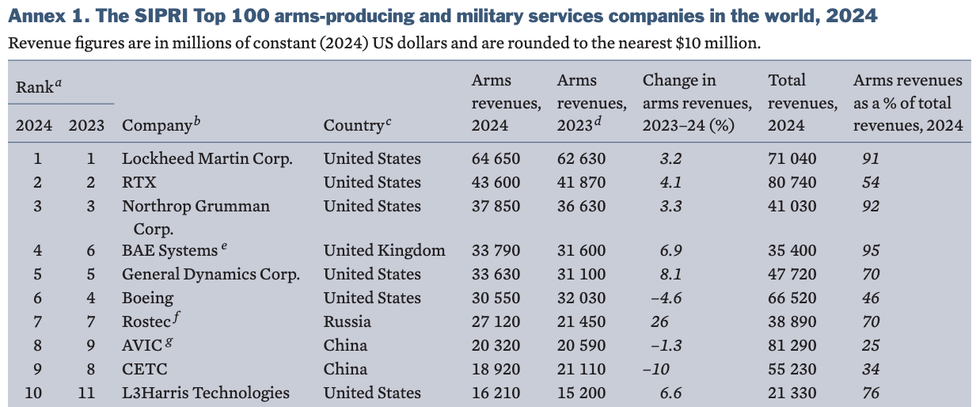
According to SIPRI's summary of the report:
Although the bulk of the global rise was due to companies based in Europe and the United States, there were year-on-year increases in all of the world regions featured in the Top 100. The only exception was Asia and Oceania, where issues within the Chinese arms industry drove down the regional total.
The surge in revenues and new orders prompted many arms companies to expand production lines, enlarge facilities, establish new subsidiaries or conduct acquisitions.
With the genocide in Gaza, Israel's largest weapons makers also had surging revenue in 2024 as bombs, missiles, and tank shells were fired on the besieged enclave, killing and maiming large numbers of Palestinian civilians, including children. As Al-Jazeera notes:
The three Israeli arms companies in the ranking increased their combined arms revenues by 16 percent to $16.2 billion amid the ongoing genocidal war on Gaza, which has killed nearly 70,000 Palestinians and destroyed most of the besieged enclave.
Elbit Systems pocketed $6.28 billion in profits, followed by Israel Aerospace Industries with $5.19 billion and Rafael Advanced Defense Systems with $4.7 billion.
In the United States, where nearly half of the global revenue for weapons makers was generated, another notable development in 2024 was SpaceX, owned by right-wing libertarian Elon Musk, landing in the Top 100 for the first time.
SpaceX's arms revenue more than doubled compared with figures from 2023, reaching $1.8 billion.
Musk is a close ally of US President Donald Trump and a major GOP donor in 2024. According to OpenSecrets, which tracks campaign spending, the mega-billionaire donated more than $291 million to Republican candidates, including Trump, during the 2024 cycle.

